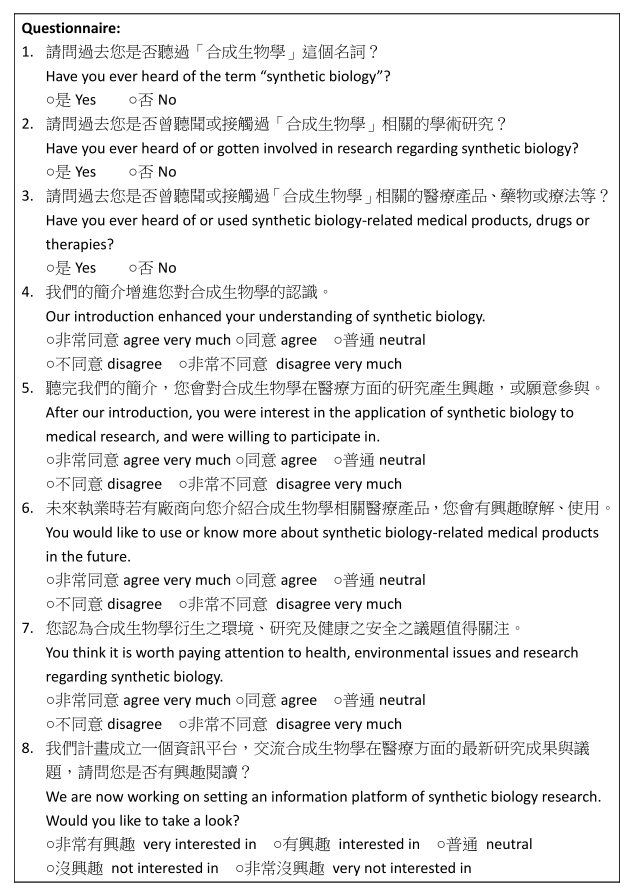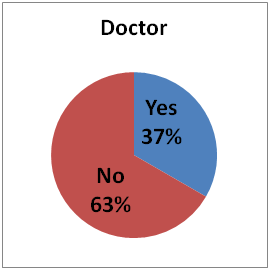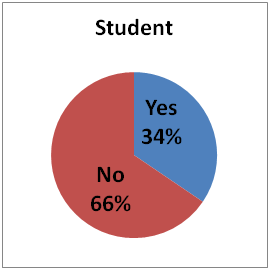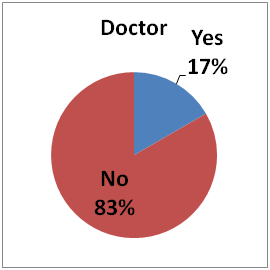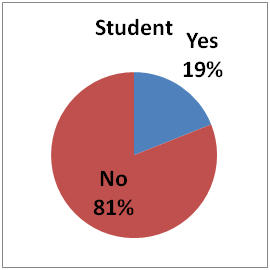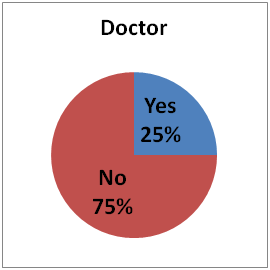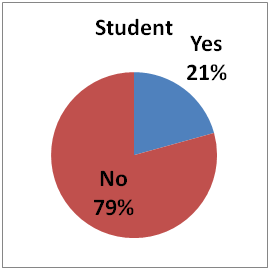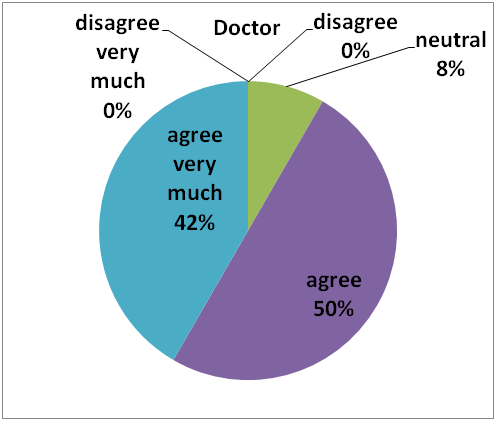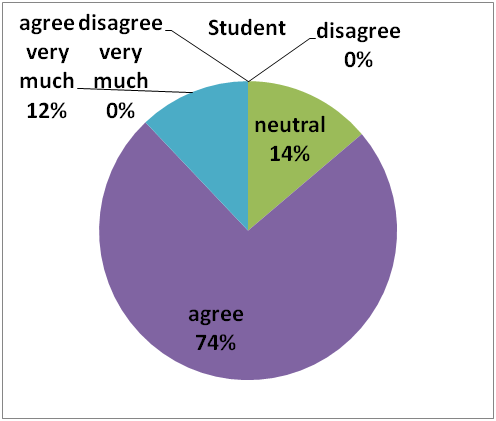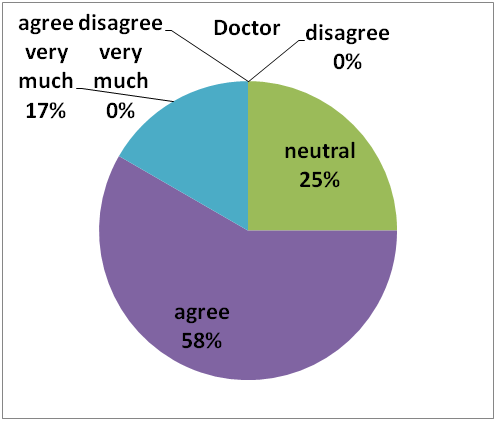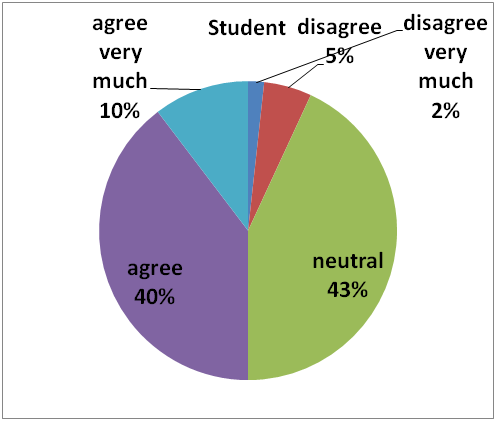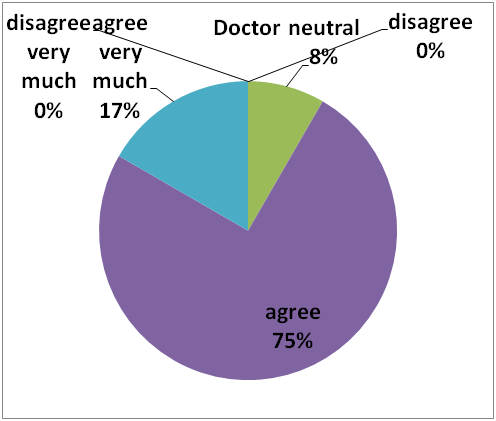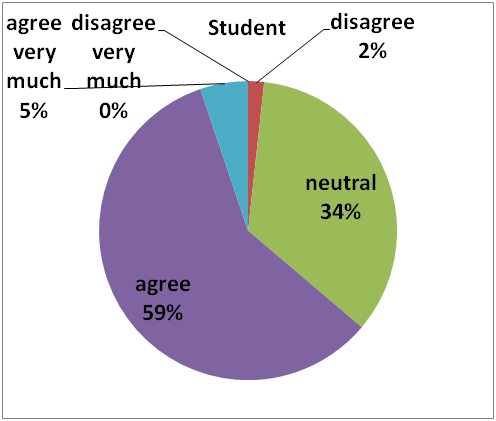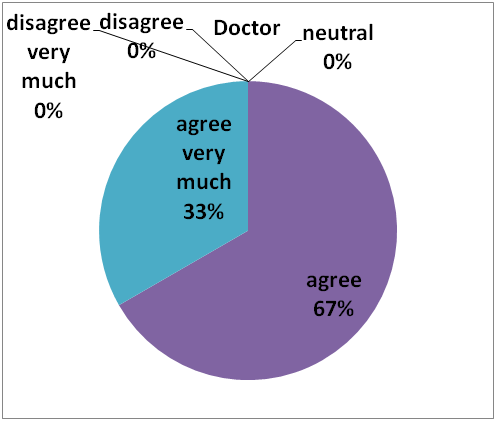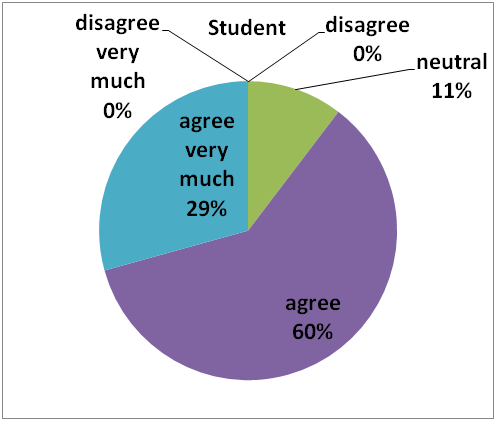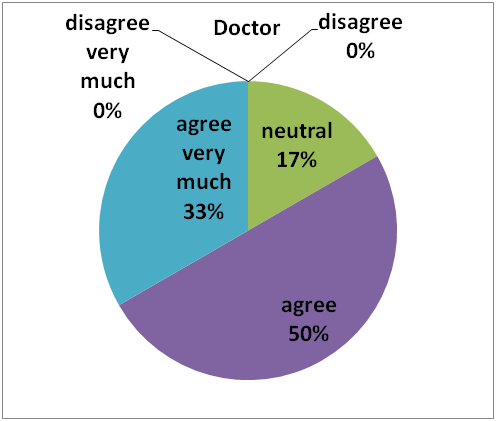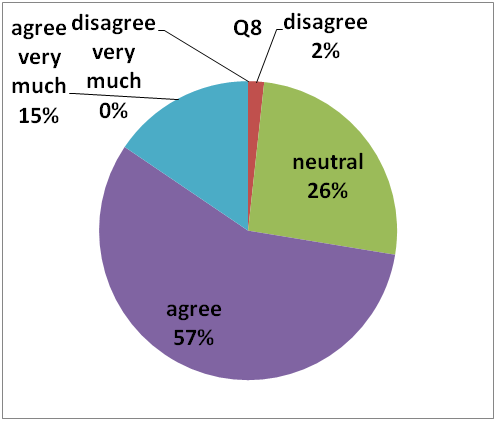Team:NTU-Taida/Human Practice/Questionnaire
From 2012.igem.org
Questionnaire and Analysis
Contents |
Questionnaire
We performed a survey on how medical students and doctors know about synthetic biology, and their interests in related research. Results of the survey showed that after our introduction, most of the medical students in NTU didn’t understand what “synthetic biology” was, its application and implication were before. But more than 75% were quite interested in knowing more information or participating related research. The doctors’ points were more conservative, especially on the issue of utilizing synthetic biology on medical and pharmaceutical use.
Result & Discussion
1.Have you ever heard of the term “synthetic biology”?
The pie-charts below showed that the same percentage of the doctor and the student attendees heard of the term “synthetic biology”. This result means that less than 40% of the attendees knew what synthetic biology is.
2.Have you ever heard of or gotten involved in research regarding synthetic biology?
The pie-charts below showed that the less percentage of the attendees knew some related research than the one heard of “synthetic biology”. And the student attendees knowing related research were slightly higher than doctors.
3.Have you ever heard of or used synthetic biology-related medical products, drugs or therapies?
Compared with question 2, there were more attendees heard of synthetic biology-related medical product than research. This suggests that it was easier to get the information of product than research, and that the medical students and doctors might know synthetic biology-related research via medical issues.
4.Our introduction enhanced your understanding of synthetic biology.
The pie-chart below showed that more than 85% of the student attendees agreed that our introduction enhance their understanding of synthetic biology; and the results of doctors are even higher (92%). Compared with the results of question1-3, it was obvious that one of the goal of human practice, outreach of synthetic biology, was successfully achieved.
5.After our introduction, you were interest in the application of synthetic biology to medical research, and were willing to participate in.
The results showed that compared to question 4, less percentage of doctor and student attendees agreed that our introduction improved their interest in applying synthetic biology on medical research. And this phenomenon was much more apparent among student than doctors. One reason was the low experience and participation rate for medical students doing lab.
6.You would like to use or know more about synthetic biology-related medical products in the future.
The pie-chart below showed that most of the doctor and student attendees had positive attitude toward synthetic biology-related medical products. But surprisingly, students were less interested in this issue. This might due to the safety issues about medical application. And it would definitely be a main concern for the public as well. It became clear that we should focus more on the negative aspect of synthetic biology in regards to its implication and progression, and what the practice synthetic biology required, in order to convince the public that synthetic biology was safe.
7.You think it is worth paying attention to health, environmental issues and research regarding synthetic biology.
The results showed that all the doctor attendees would like to know further information in regards to synthetic biology, while there was nearly 90% students had the same point of view.
8.We are now working on setting an information platform of synthetic biology research. Would you like to take a look?
About a quarter of the attendees had neutral attitude toward following our works. Again, doctors were sightly more interested in our project. We thought that low lab experience might play an important role in this phenomenon.
 "
"


